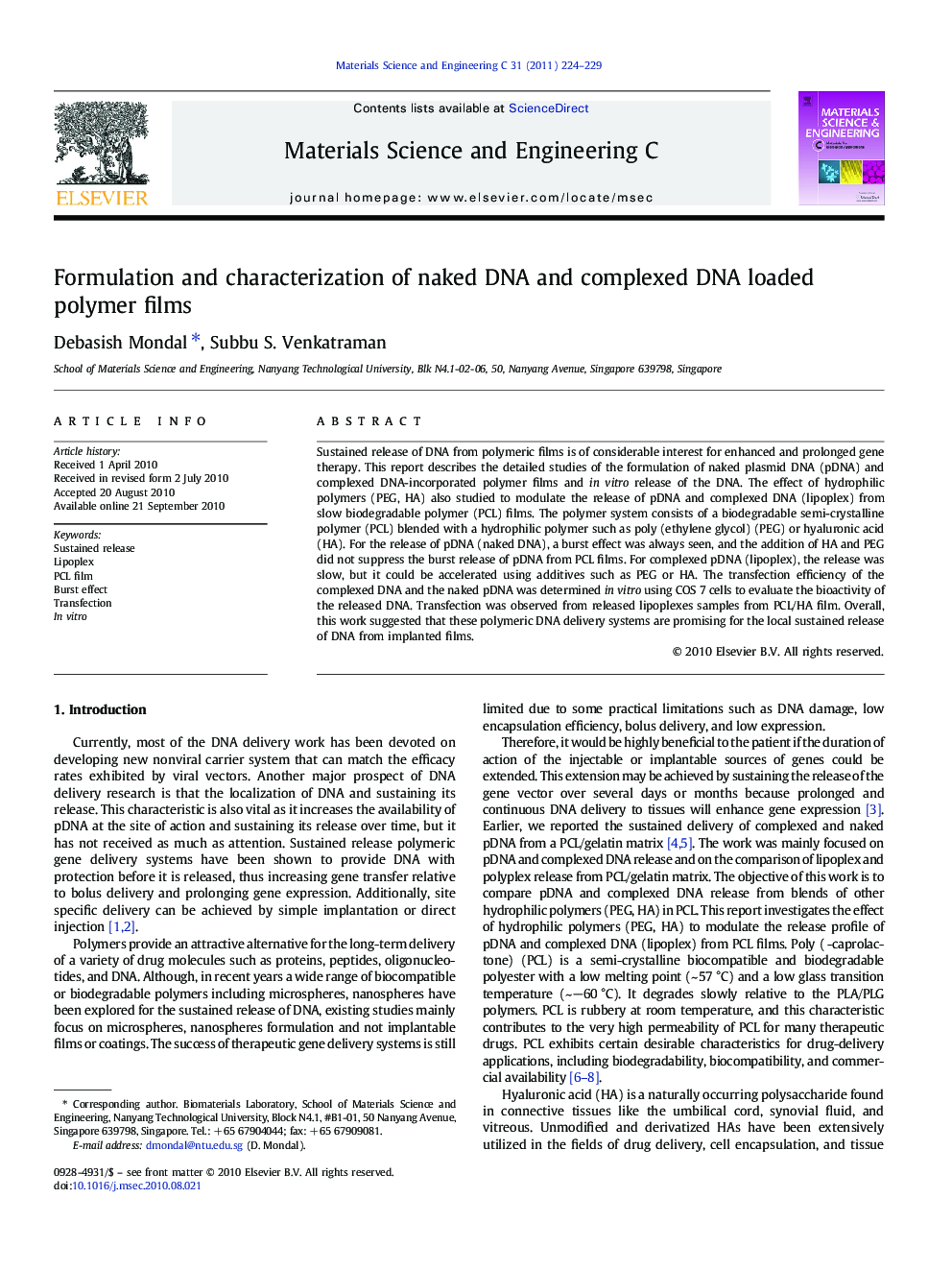| Article ID | Journal | Published Year | Pages | File Type |
|---|---|---|---|---|
| 10614772 | Materials Science and Engineering: C | 2011 | 6 Pages |
Abstract
Sustained release of DNA from polymeric films is of considerable interest for enhanced and prolonged gene therapy. This report describes the detailed studies of the formulation of naked plasmid DNA (pDNA) and complexed DNA-incorporated polymer films and in vitro release of the DNA. The effect of hydrophilic polymers (PEG, HA) also studied to modulate the release of pDNA and complexed DNA (lipoplex) from slow biodegradable polymer (PCL) films. The polymer system consists of a biodegradable semi-crystalline polymer (PCL) blended with a hydrophilic polymer such as poly (ethylene glycol) (PEG) or hyaluronic acid (HA). For the release of pDNA (naked DNA), a burst effect was always seen, and the addition of HA and PEG did not suppress the burst release of pDNA from PCL films. For complexed pDNA (lipoplex), the release was slow, but it could be accelerated using additives such as PEG or HA. The transfection efficiency of the complexed DNA and the naked pDNA was determined in vitro using COS 7Â cells to evaluate the bioactivity of the released DNA. Transfection was observed from released lipoplexes samples from PCL/HA film. Overall, this work suggested that these polymeric DNA delivery systems are promising for the local sustained release of DNA from implanted films.
Related Topics
Physical Sciences and Engineering
Materials Science
Biomaterials
Authors
Debasish Mondal, Subbu S. Venkatraman,
